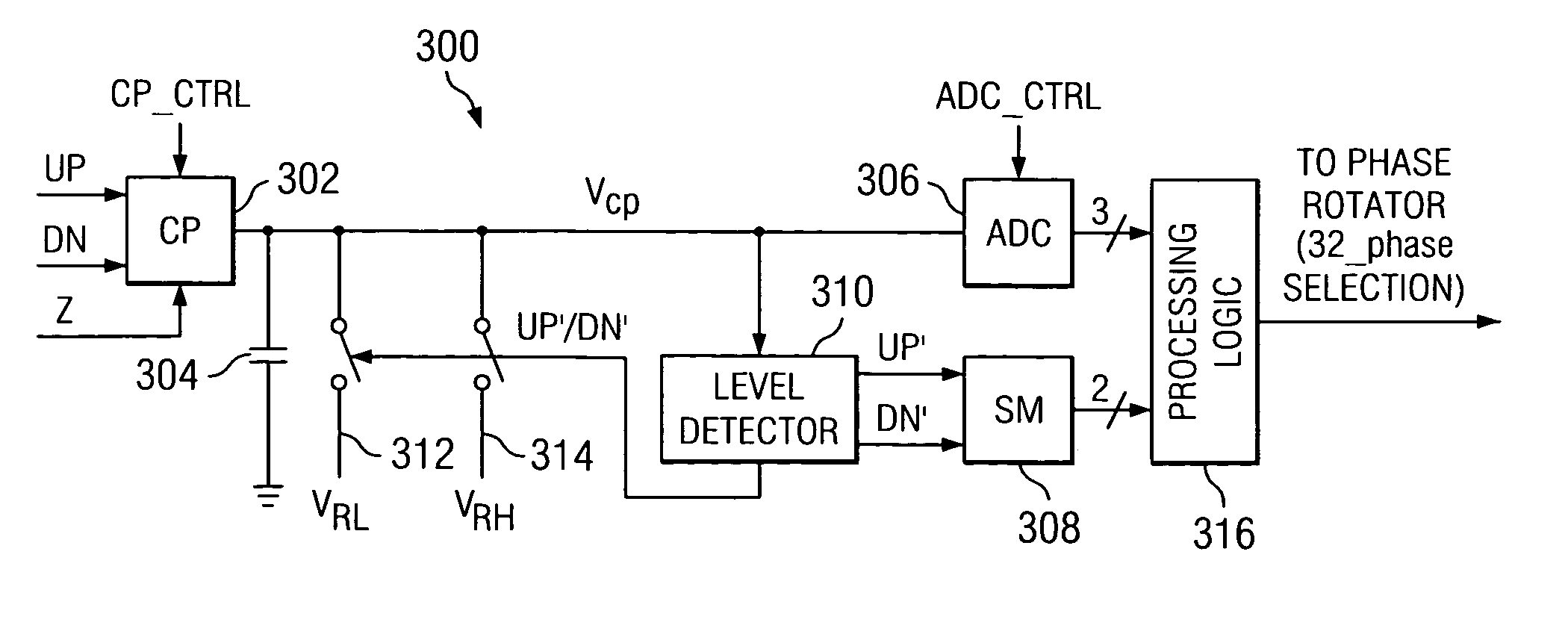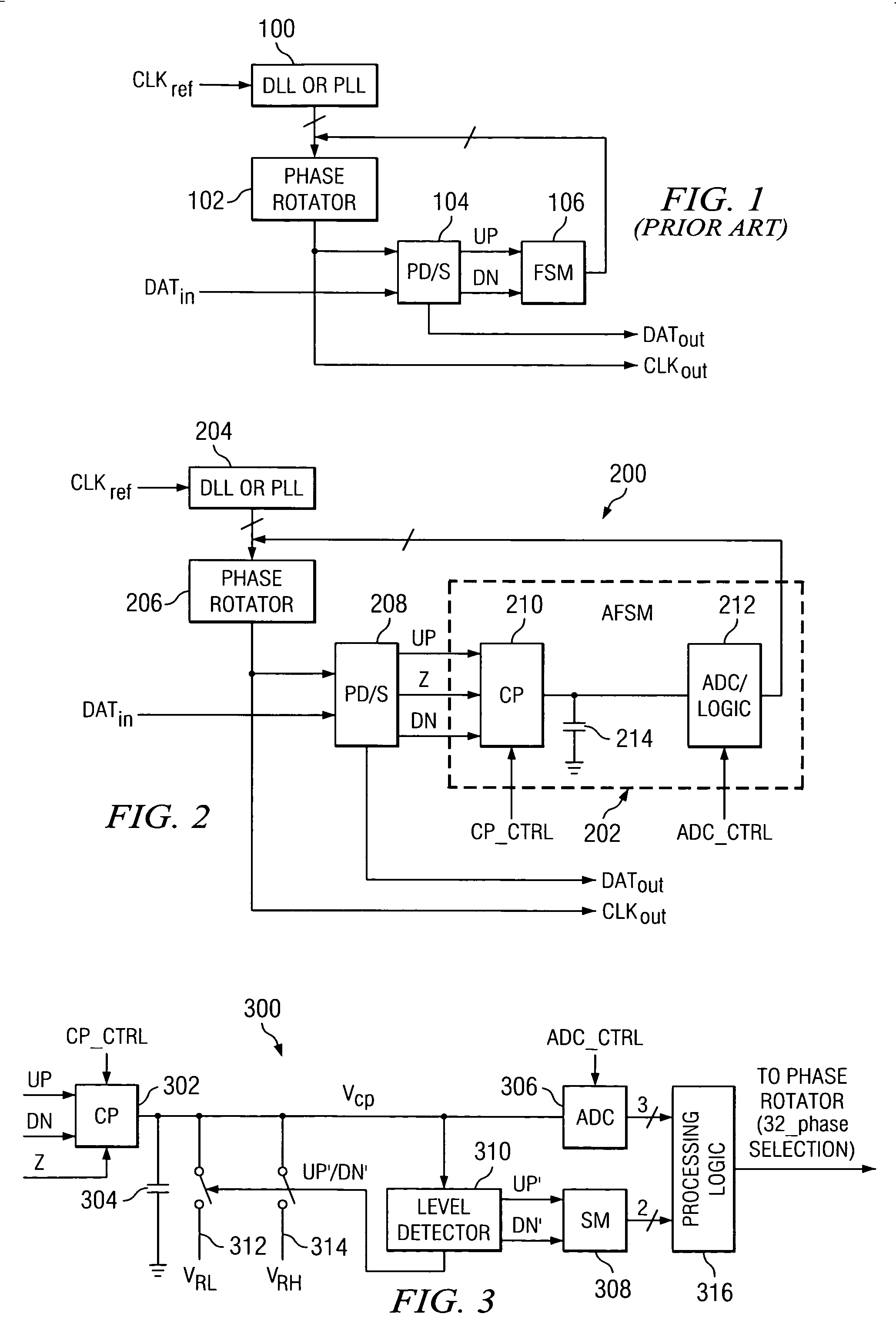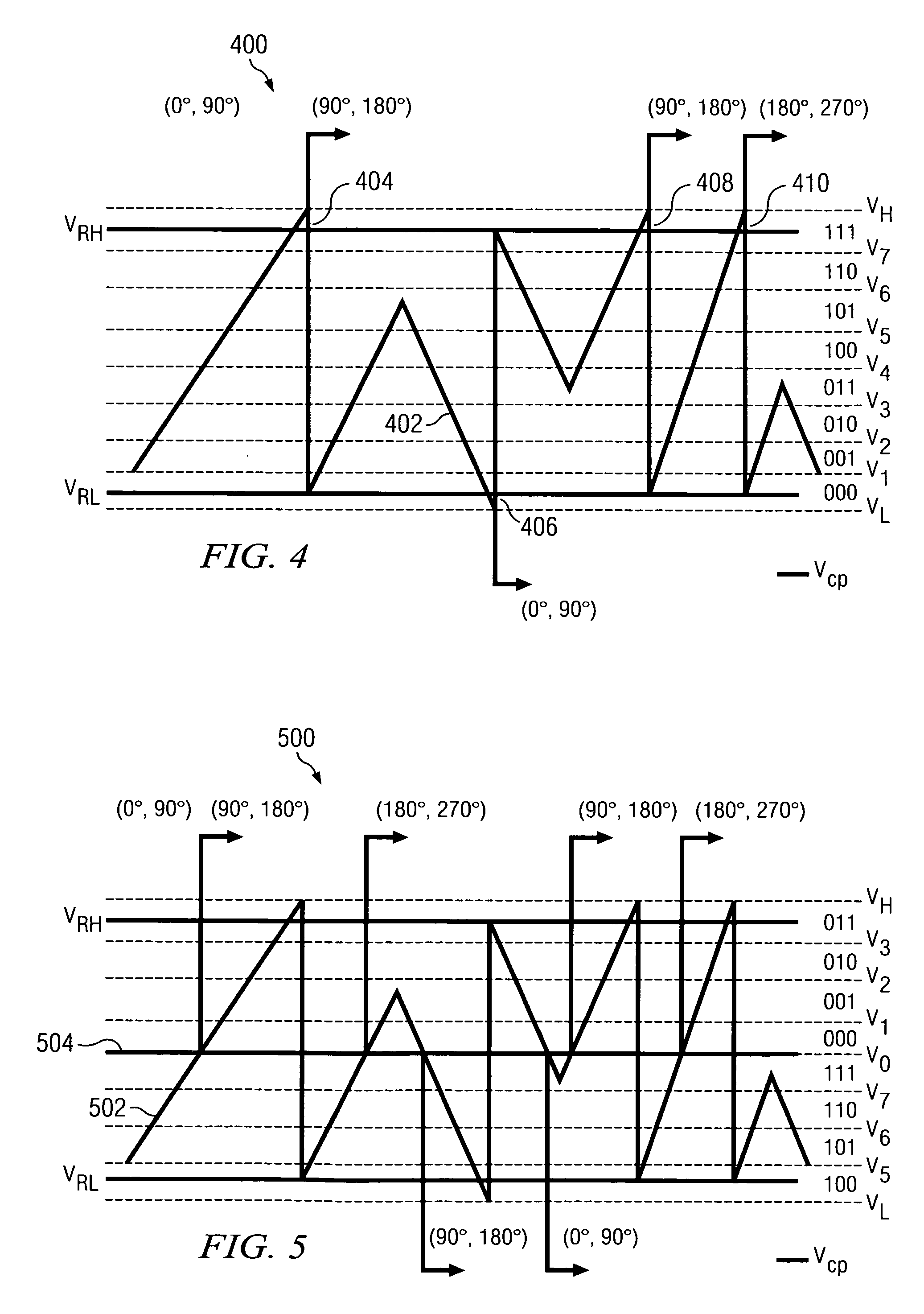Semidigital delay-locked loop using an analog-based finite state machine
a delay-locked loop, analog-based finite-state machine technology, applied in the direction of digital transmission, pulse automatic control, electrical equipment, etc., can solve the problems of insufficient power saving due to half-rate topology, inability to incur deterministic jitter performance penalties, and inability to achieve significant power. , to achieve the effect of double hardware complexity, not incurring unacceptable deterministic jitter performance penalties, and substantial power
- Summary
- Abstract
- Description
- Claims
- Application Information
AI Technical Summary
Benefits of technology
Problems solved by technology
Method used
Image
Examples
Embodiment Construction
[0019] With reference now to the figures and in particular with reference to FIG. 2, a diagram of a semidigital delay-locked loop circuit is depicted in accordance with an illustrative embodiment. Semidigital delay-locked loop circuit 200 provides a low power full-rate semidigital DLL architecture using an analog based finite state machine, AFSM 202. Semidigital delay-locked loop circuit 200 also includes DLL or PLL circuits 204, phase rotator 206, and phase detector / sampler (PD / S) 208. DLL or PLL circuit 204 receives a reference clock signal, CLKref, generates multiple phases of a clock at a frequency related to that of CLKreF, and sends these output phases to phase rotator 206. In the illustrative examples, phase rotator 206 is a linear phase shifting circuit. The phase of a signal may be discretely or continuously adjusted over a range from 0° to 360°, depending on how the control signals to the phase rotator 206 is provided. One common method for generating the multiphase clock ...
PUM
 Login to View More
Login to View More Abstract
Description
Claims
Application Information
 Login to View More
Login to View More - R&D
- Intellectual Property
- Life Sciences
- Materials
- Tech Scout
- Unparalleled Data Quality
- Higher Quality Content
- 60% Fewer Hallucinations
Browse by: Latest US Patents, China's latest patents, Technical Efficacy Thesaurus, Application Domain, Technology Topic, Popular Technical Reports.
© 2025 PatSnap. All rights reserved.Legal|Privacy policy|Modern Slavery Act Transparency Statement|Sitemap|About US| Contact US: help@patsnap.com



